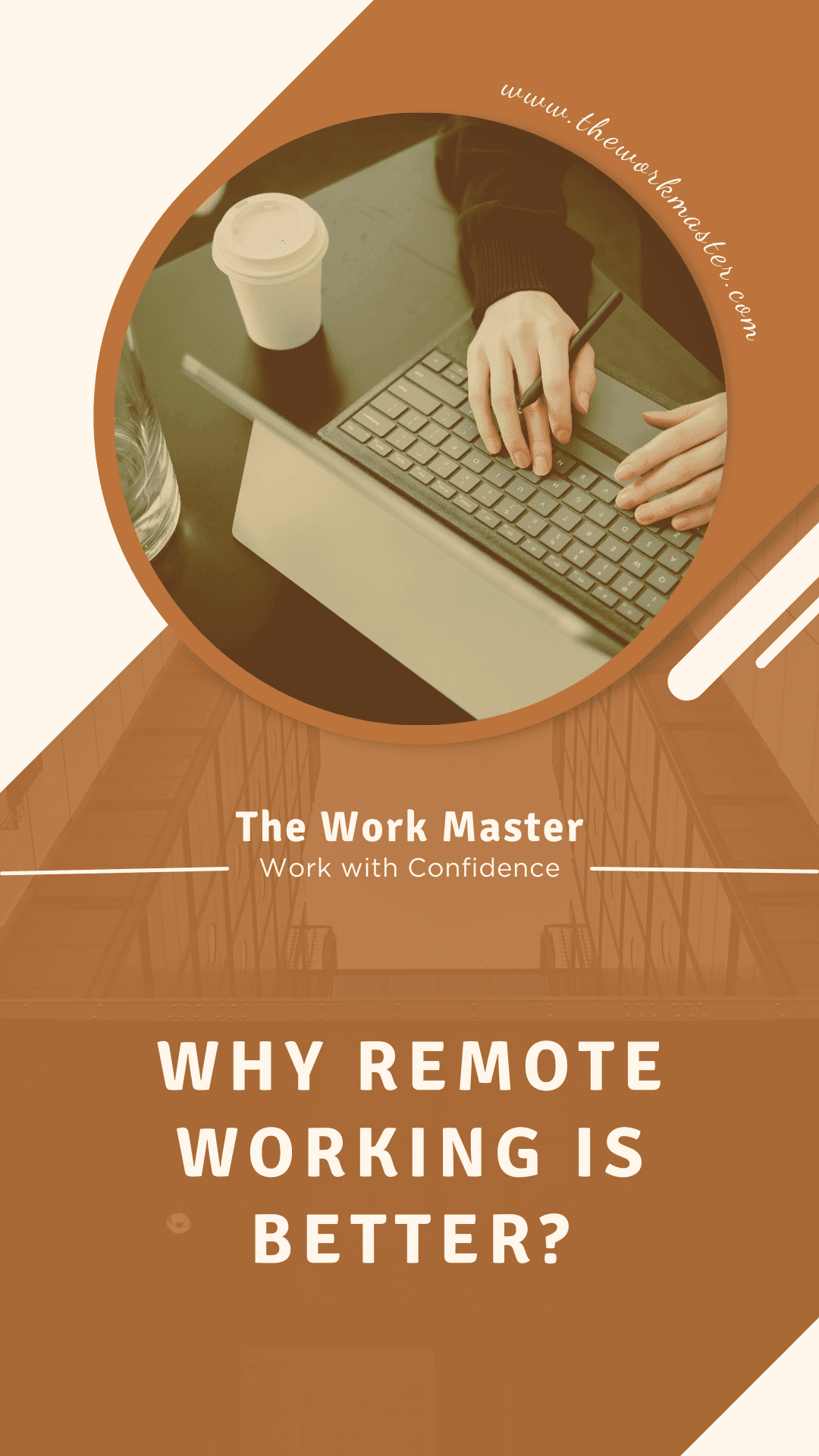Прочети на Български ==> Read in English (US)
In this post, I want to share the answers to people's most common questions about why remote working is better. It's an exciting new field, and you should be prepared with the correct info to kick you off in this market.
Many people I talked with through the years are complaining about the same thing - working from home seems too complicated. Let's simplify it by separating items into pieces and learning from each question.
Why Remote Working Is Better: Learn the Basics
Here we go:
1. How can one find remote work?
The best way to start looking for remote jobs is by using a search engine. Type your preferred type of job and check for remote positions.
From the first page of results, you can navigate to relevant job boards, and social networks and explore specific opportunities deeper.
2. Are remote jobs better paid than traditional ones?
There is no limit to how much you can earn remotely. The same goes for regular jobs. The paycheck you receive is determined by other factors, such as the type of job, your position in the company hierarchy, whether you are an employer, self-employed, or a business owner, etc.
While some fields tend to pay higher than others, there is no guarantee that you will make more remotely. However, you will find unique earning opportunities if you approach remote working with an open mindset.
3. What is the best thing about working remotely?
Freedom is the reason people switch to remote work. You can optimize time, schedule, personal assignments, etc. You can choose the time you work, your home office setup, the projects you participate in, and your daily routine.
4. How do you organize your day when working from home?
To be efficient in remote work, you can use productivity tools like EssentialPIM, monday.com, Asana, or any other alternative. You can track your time with a timer app or use time-blocking to improve efficiency.
5. Can you earn a living if you work entirely remotely?
Yes, you can! I've worked full-time remotely since 2015, and many of my colleagues are doing the same. Many bloggers, online businesses, and entrepreneurs have succeeded in creating a digital nomad lifestyle, especially recently, with the technology innovation.
6. Are you allowed to take sick leave if you work online?
The time off when you are ill depends on the contract you signed with your company. Labor contracts allow sick leaves, while independent contractors are paid per hour/per task.
If you are working as a contractor, you can still take a break while recovering from a disease, but no earnings will be provided.
7. Can you really work from anywhere if your job is online?
The short answer to this question is "Yes - if you have internet". Although you can complete some tasks offline on your computer, you need an Internet connection to send files to your manager and communicate efficiently. Email and messaging are an essential part of freelancing.
8. What is the most significant disadvantage of remote work?
Reduced social interactions. During the pandemic, many people experienced work from home, and in some cases, they felt isolated.
Social distancing and isolation are natural in remote work. But with the right mindset, you can still have a lot of outings with friends outside of your job and protect your work-life balance.
9. Are there legit remote jobs?
There are a lot of companies that provide online work and treat freelancers with respect and honesty. If you stick to proven companies with many reviews that are known in the market for their reputation, all will be good.
Beware of new companies with few reviews that offer a higher income than the average. It looks suspicious.
10. Can you make a million dollars working from home?
Yes, accumulating wealth doesn't depend on the place you work but on your skills. If you are determined to earn a million dollars from home, this can happen as it does to many people every year. The most common way to do this is by running an online business.
11. How can I get started with online jobs?
The first thing you must decide is the job type you want. Once you have a clear idea of the position, you can search in Google or visit relevant job boards setting their filters to display your preferences.
12. Can I work only using my mobile in remote jobs?
Yes, some jobs can be performed entirely on mobile. Some jobs are exclusively for mobile devices. I prefer working on my laptop as the bigger screen gives me more control over what I see. However, working only on a smartphone is a possibility for some projects.
13. How do I stay safe from remote scam jobs?
Check the website on Scamadviser or a similar analyzer to gain a general idea of the website's trustworthiness. In addition, visit their social accounts to determine if they are active and engaging with their users. Search for relevant information or reviews of people on different websites or forums.
14. Is working remotely harder or easier than traditional jobs?
It is different. Both remote jobs and traditional jobs have their advantages and disadvantages. The "hard" part in remote working is the scheduling, the self-initiative when solving a technical issue yourself, and the accounting you should perform. Other than that, working from home is similar to any different position.
15. If I work from my flat, do I have to invest in a home office?
No, but it is recommended. Imagine you get up and start checking your work emails in your bed. To keep the balance between work and spare time, you must set up a designated spot for an office. It will improve concentration, simplify boundary setting with your family, etc.
16. What remote job can I start with that doesn't require experience?
The data entry jobs typically don't require any relevant experience. It can be document retyping, filling out data, updating information, manual file conversions, etc. These jobs can be done by anyone and don't require certifications or a university degree.
17. How long will it take me to find remote work?
The more active you are in applying, the faster you will find your next job. Some people manage to land a project in a week, while others can search for months. Your success depends on your attitude toward the application process, your optimism about it, and how much effort you put into preparing your documentation.
18. Are freelancers allowed to have paid leave?
You can take a leave anytime if you are an independent contractor working on various projects. However, it will not be paid. You are paid the hourly/piece rate you agreed upon in your contract. However, salaries are typically higher for work-from-home positions due to the reduced taxes owed by the companies.
19. Can I earn from home without qualifications?
Yes, many jobs will have no or low entry criteria, and you can prove yourself with the quality and accuracy of your work. Jobs with higher qualifications are paid better. You can start with a less-paying job and upgrade your skills to get a better job.
20. What to do if I don't receive my payment (I work from home)?
Avoid working with companies that are little known. If your payment is yet to be sent, the first step is to communicate with the job provider about the issue, as it might be a human error or unintentional. Once you know the exact reason, you can take the proper steps to resolve it and even take the case to court if necessary.
21. How will I get paid when I start working online?
There is a large variety of payment processors that you will use once you start freelancing. Some are PayPal, Payoneer, and Skrill. Many companies handle their payments with their own systems using the invoicing department. In short, how you will be paid depends on who you work for.
22. What are some kid-friendly jobs to work at home?
You can have an online business, blogging, dropshipping, selling handmade products, gardening projects, etc.
A job is kid-friendly if it allows complete flexibility in the scheduling, allows you to work part-time, and you can have your kid join you.
23. Do I need to pay taxes if I work remotely?
In most cases, yes. As a freelancer, you are responsible for paying the taxes, and those of the company you work with are reduced or missing.
Since you will sign an independent contract and provide your services "per piece" or per project, your job is more similar to a business where you take full responsibility for the expenses.
24. A company asked me to pay a fee to start working from home? Is it normal?
When looking for a job, you will expect to earn money, and if someone asks you to invest before you even start, this sounds suspicious the least.
My advice is to check the offer thoroughly, and if you notice anything wrong, please stay away to avoid being cheated.
To Summarize
And, why remote working is better? Because you get the freedom found nowhere else. You enjoy a fully flexible work environment and save time.
Embrace the new opportunities available online, and start applying for your next job from the comfort of your home.
This post will be updated regularly to capture changes in the modern workforce. If you need the answer to any question you don't find in the list, please email me using our Contact form. Can't wait to hear your suggestions!
Grab our free hand-picked
list of remote jobs now!
*Includes 148 websites with multiple remote
job offers organized into 7 categories.
Bonus: You'll receive updates on new free resources as soon as they are live.
+ Best remote job recommendations and little-known freelancing hacks for time-saving.



